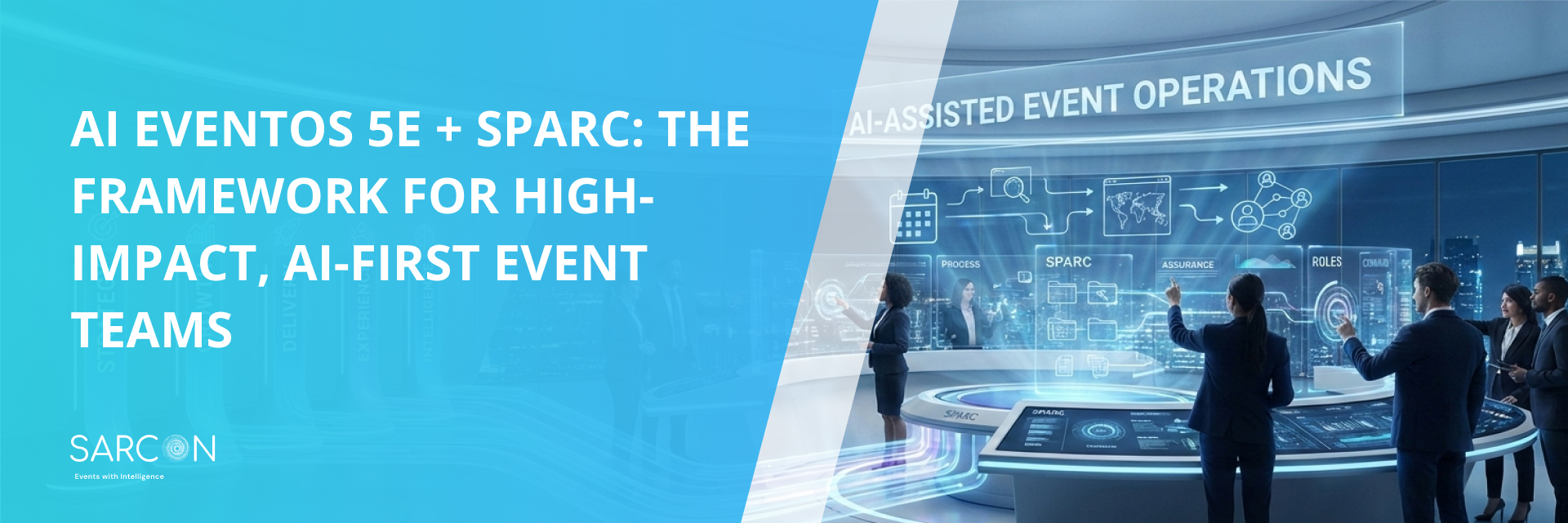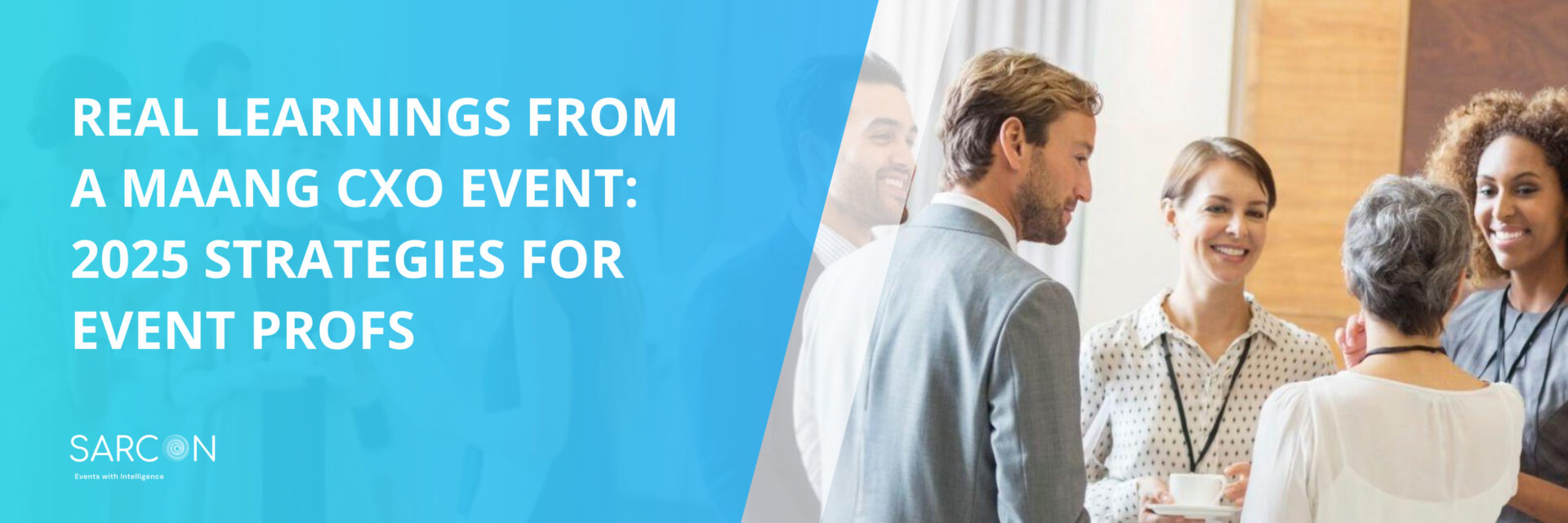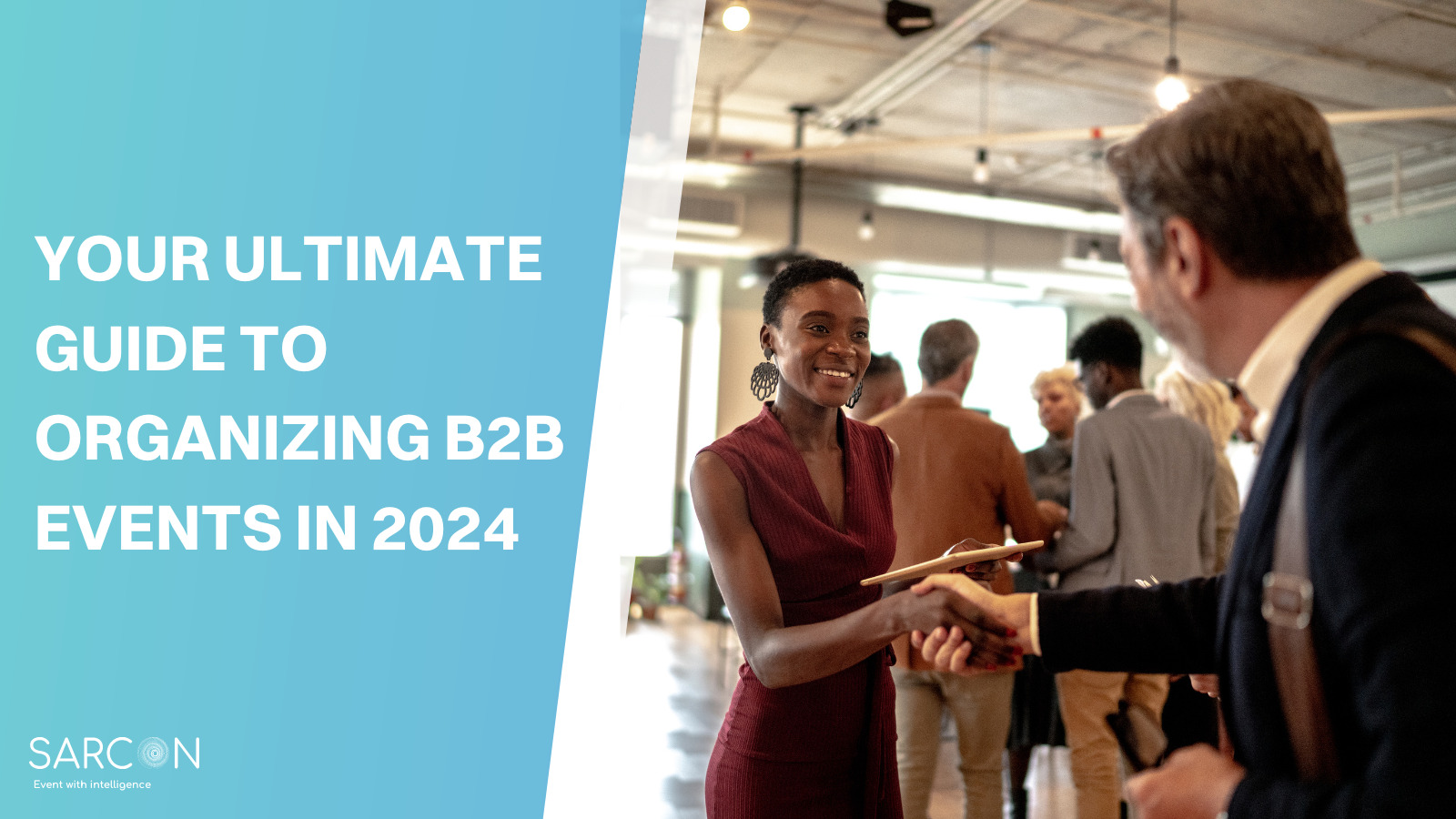In 2024, Business-to-Business (B2B) events have transcended traditional boundaries, evolving into dynamic platforms for fostering commercial relationships, exchanging knowledge, and unveiling cutting-edge industry trends. B2B events, which encompass conferences, trade shows, webinars, and workshops, have become pivotal in the contemporary business landscape, especially with the digital transformation reshaping how businesses interact and operate.
The Changing Landscape of B2B Events
B2B events are undergoing a transformative phase, adapting to the ever-changing business landscape. In 2024, these events are no longer mere gatherings; they are immersive experiences. Here are some critical insights into the evolving trends:
2024 B2B Event Trends:
- Virtual Hybrid Events: 2024 sees the rise of virtual hybrid events, a fusion of in-person and virtual experiences. Attendees can participate either physically or from the comfort of their homes, broadening the event’s reach and accessibility.
- Personalization at its Core: In this age of information overload, attendees seek personalized experiences. Tailoring your event to cater to individual preferences and needs is no longer optional but essential for success.
- Sustainability Takes Center Stage: Sustainability is a non-negotiable element of modern B2B events. Event organizers are increasingly adopting eco-friendly practices, reducing waste, and exploring innovative ways to minimize their carbon footprint.
- Data-Driven Decision-Making: Leveraging data analytics has become pivotal for event optimization. Real-time data provides insights into attendee behavior, enabling organizers to make informed decisions on the fly.
What Are B2B Events?
Types of B2B Events
From bustling trade shows to intimate networking dinners, B2B events come in various formats, each serving specific business needs. The rise of hybrid models has enabled a seamless fusion of physical and digital experiences, catering to a diverse audience.
Key Characteristics of B2B Events
The primary objectives of B2B events revolve around networking, lead generation, brand promotion, and sharing industry insights. Participants range from startups to industry giants, all seeking to expand their professional horizons.
Benefits of B2B Events
Networking and Relationship Building
B2B events provide unparalleled opportunities for forging new business relationships. Success stories abound of partnerships and deals that originated in the corridors of such events, underlining their importance in the business ecosystem.
Knowledge Sharing and Industry Insights
These events are hotbeds for knowledge exchange, offering platforms for thought leaders to share insights. Recent B2B events have been instrumental in unveiling industry trends, influencing business strategies worldwide.
Lead Generation and Sales Opportunities
B2B events serve as fertile grounds for lead generation and direct sales. Companies often strategize to maximize this potential, resulting in significant business deals and partnerships.
Brand Visibility and Marketing
Participation in B2B events elevates brand visibility and strengthens market positioning. Many businesses have catapulted to prominence through effective engagement in these events.
How to Organize a B2B Event
Organizing a successful Business-to-Business (B2B) event can be a daunting task, but with careful planning and execution, it can also be incredibly rewarding. Here’s a step-by-step process of organizing a B2B event that not only meets but exceeds your goals.
1. Define Your Objectives Clearly
Before diving into event planning, it’s crucial to have a crystal-clear understanding of your objectives. Ask yourself, “What do I want to achieve with this B2B event?” Whether it’s lead generation, brand awareness, product launches, or something else entirely, your objectives will serve as the guiding star for all your decisions.
2. Understand Your Target Audience
In-depth knowledge of your target audience is also essential. Create detailed buyer personas to help you understand the demographics, interests, and pain points of your potential attendees. The more you know about your audience, the better you can tailor your event to their specific needs and preferences.
3. Budget
Once you’ve articulated your event’s goal and target audience, it’s time to determine the financial resources you’re willing to invest in making it a reality. As a B2B event planner, your budget should encompass various aspects, including venue selection, marketing strategies, technological requirements, staffing, and other specific needs. A well-thought-out budget not only prevents overspending but also ensures that your financial resources are allocated optimally to yield the highest returns on investment.
4.Carefully Select the Date and Venue
Choosing the right date and venue can significantly impact the success of your B2B event. Consider factors such as the event’s scale, target audience, and the desired ambiance when selecting a venue. It’s essential to ensure that the location is easily accessible and capable of comfortably accommodating the expected number of attendees. Addressing logistics encompasses various aspects, including transportation, parking arrangements, audiovisual equipment, and catering services. Attending to these details during the planning stage sets the stage for a seamless and enjoyable experience for all participants.
5. Develop a Comprehensive Agenda
Your event’s agenda should offer value and engagement to your attendees. Consider including keynote speakers, breakout sessions, workshops, and networking opportunities. A meticulously designed agenda not only captivates the audience but also guarantees the smooth flow of the event, enabling participants to derive maximum value from their attendance. The ultimate goal is to provide attendees with a memorable and enriching experience. Make sure that every element of your agenda aligns with your overall objectives and provides actionable insights to participants.
6. Secure High-Profile Speakers
To boost the credibility and attractiveness of your B2B event, invite industry experts and thought leaders as speakers. Highlight their participation in your event promotions to generate excitement and interest among your target audience.
7. Craft Engaging Content
Content is king, even in event planning. Keep your attendees engaged with high-quality content throughout the event. Utilize multimedia presentations, panel discussions, interactive workshops, and real-life case studies to keep participants actively involved and learning.
8. Streamline Registration and Ticketing
Create a user-friendly online registration and ticketing system. Attendees should be able to register, pay, and receive event details with ease. Consider offering early bird discounts, group rates, and VIP packages to incentivize ticket sales.
9. Facilitate Networking Opportunities
B2B events are as much about networking as they are about content. Plan and facilitate networking opportunities for your attendees. Consider hosting dedicated networking sessions or using event apps that allow attendees to connect with like-minded individuals. Encourage interactions among participants to enhance their overall experience.
10. Monitor and Measure Success
Your job doesn’t end when the event begins. Collect feedback during the event and monitor key performance indicators (KPIs). Use surveys and social media sentiment analysis to gauge attendee satisfaction and identify areas for improvement. After the event, conduct a thorough analysis of the data to inform your strategy for future events.
Here’s a step-by-step guide to Organizing B2B Events in 2024.
Strategies to Market B2B Events
Digital Marketing Techniques
Effective B2B event marketing is about creating meaningful connections and providing value to your audience. It requires a strategic approach that targets the right audience and utilizes various channels to reach them. Here’s how you can effectively market your B2B event:
- Understanding Your Target Audience: The first step in marketing a B2B event is to thoroughly understand your target audience. This involves identifying the specific businesses, professionals, and industry sectors that would benefit most from your event. Consider factors such as their business needs, challenges they face, and their professional interests. This understanding will guide all aspects of your marketing strategy, ensuring that your messaging and promotional efforts resonate with the potential attendees.
- Developing a Strong Value Proposition: Once you know your audience, develop a compelling value proposition for your event. Clearly articulate what attendees will gain by participating. This can include the knowledge they will acquire, networking opportunities, and unique experiences exclusive to your event. Highlight keynote speakers, workshops, and other attractions that set your event apart.
- Creating an Effective Event Website and Landing Page: Your event’s website or landing page is often the first point of contact with potential attendees. It should be well-designed, informative, and user-friendly, providing all necessary details about the event, such as the agenda, speakers, location, dates, and registration information. A clear call to action, such as a registration button, should be prominently displayed.
- Implement a Multi-Channel Marketing Strategy: Successful event marketing is a multi-pronged effort. Utilize a combination of email marketing, social media promotion, content marketing, and paid advertising to reach your target audience. To improve your online visibility, incorporate SEO-optimized keywords in your digital content.
- Utilizing Email Marketing: Segment your email list to send personalized messages to different groups based on their interests and previous interactions with your brand. Craft engaging emails that convey the value of your event and include clear calls to action.
- Leveraging Social Media: Social media platforms like LinkedIn, Twitter, and industry-specific forums are vital for promoting your event. Regularly post updates, share speaker profiles, and create teasers about the event content. Engaging content can encourage shares and discussions, increasing the visibility of your event.
- Engaging in Content Marketing: Develop a content marketing strategy related to your event’s theme. This could include blog posts, white papers, webinars, and podcasts. The content should provide value to your target audience while subtly promoting your event. This approach establishes your authority in the industry and can draw more attendees to your event.
- Partnering with Influencers and Industry Leaders: Collaborate with influencers and respected figures in your industry. Their endorsement can significantly expand your event’s reach and lend it credibility. Influencers can promote your event to their networks, both online and offline, helping you tap into a larger audience.
- Utilizing Paid Advertising: Investing in paid advertising is essential for reaching a broader audience. Platforms like Google AdWords and LinkedIn offer targeted advertising options that can be customized to reach your desired audience. Consider placing ads or sponsored content on websites and publications popular among your target industry sectors.
- Building Networking and Partnerships: Form partnerships with industry associations, media outlets, and other relevant organizations. These partnerships can enhance the promotion of your event through shared resources and expanded networks.
- Offering Incentives : To encourage early registrations, offer early bird discounts. You can also provide group discounts to incentivize organizations to send multiple attendees, increasing overall participation.
- Monitoring and Adapting Your Strategy: Use analytics tools to monitor the performance of your marketing efforts. Track metrics like website traffic, email open rates, and social media engagement. Be prepared to adjust your strategy based on these insights to ensure maximum effectiveness.
- Post-Event Engagement: Your marketing efforts shouldn’t end with the event. Engage with attendees post-event by sharing materials like session recordings, summaries, and follow-up content. This keeps the conversation going and lays the groundwork for future events.
Conclusion
B2B events in 2024 are more than just gatherings; they are pivotal junctures where businesses converge to shape the future. As we look beyond 2024, these events will undoubtedly continue to evolve, embracing new technologies and adapting to the ever-changing business landscape. The enduring relevance of B2B events in fostering business growth, building networks, and sharing knowledge is a testament to their integral role in the world of business.



